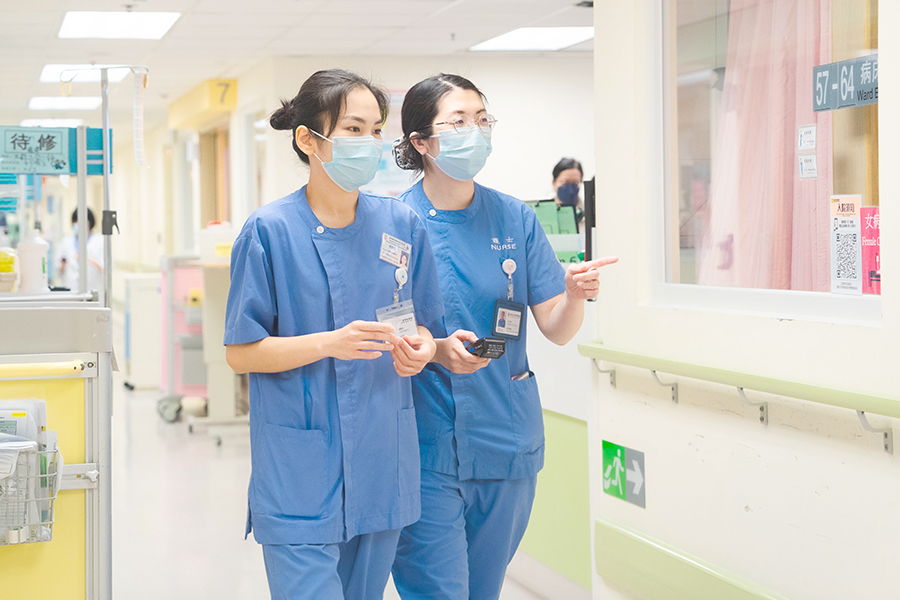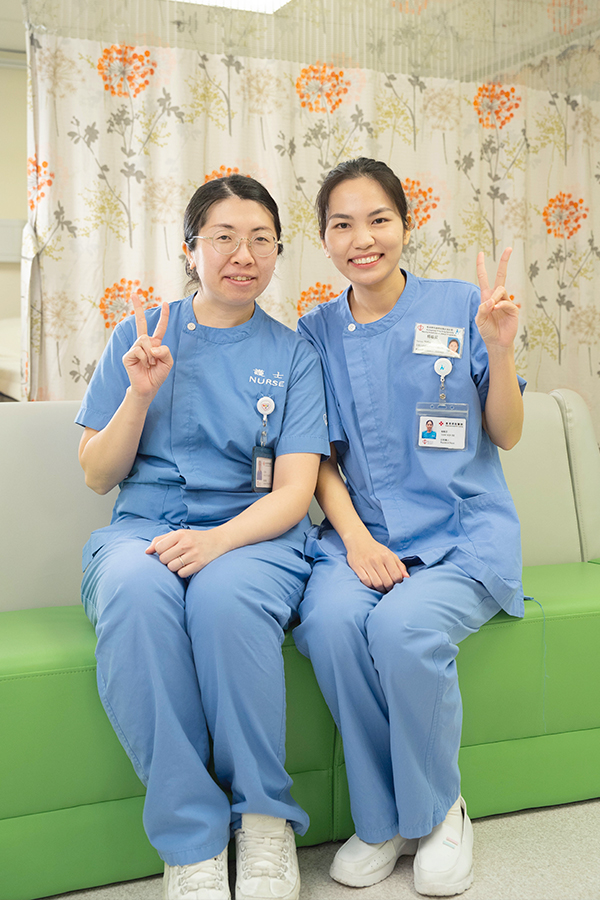Nurse exchange brings two-way benefits in caring
 The Greater Bay Area (GBA) Specialty Nursing Knowledge-exchange Programme began in April 2023 when the first intake of 70 nurses came to Hong Kong and – after 10.5 months – concluded with a host of moving stories. Guangdong nurse Yang Min-fei was rotated to the palliative care unit of the Hong Kong Buddhist Hospital (HKBH) after five months of clinical practicum in the Department of Medicine at Queen Elizabeth Hospital. She was particularly impressed by the level of care given by Hong Kong nurses to patients with long-term and terminal illnesses.
The Greater Bay Area (GBA) Specialty Nursing Knowledge-exchange Programme began in April 2023 when the first intake of 70 nurses came to Hong Kong and – after 10.5 months – concluded with a host of moving stories. Guangdong nurse Yang Min-fei was rotated to the palliative care unit of the Hong Kong Buddhist Hospital (HKBH) after five months of clinical practicum in the Department of Medicine at Queen Elizabeth Hospital. She was particularly impressed by the level of care given by Hong Kong nurses to patients with long-term and terminal illnesses.
She says she appreciates the way the Hong Kong healthcare team pays attention to the physical, mental, social, and spiritual well-being of patients, playing nostalgic music and TV dramas to dementia patients to soothe them, reducing the need for constraint, for instance. “They also advise family members during visits on how to care for patients to minimise readmission to hospitals,” Min-fei reflects. “All disciplines do their best and work together to ensure patients have a better quality of life when they return to the community. I will share this experience with my colleagues in the Mainland and I believe it will be inspirational for our discharge planning.”
 Min-fei was responsible for the case management of several terminal patients during her time in Hong Kong and her mentor, Advanced Practice Nurse of HKBH Wong Yui-ming, praises her for her patience. “Families of patients with terminal illnesses are relatively fragile, so we need to be more tactful in our conversations,” she says. “Min-fei always answered questions carefully, and her advice showed she knew each case very well. She was highly regarded by patients and their families.”
Min-fei was responsible for the case management of several terminal patients during her time in Hong Kong and her mentor, Advanced Practice Nurse of HKBH Wong Yui-ming, praises her for her patience. “Families of patients with terminal illnesses are relatively fragile, so we need to be more tactful in our conversations,” she says. “Min-fei always answered questions carefully, and her advice showed she knew each case very well. She was highly regarded by patients and their families.”
Chinese medicine services were introduced to their ward at the end of last year, and Min-fei’s experience in the Geriatric Oncology Department at the Guangdong Provincial Hospital of Traditional Chinese Medicine was extremely useful as terminally ill patients often suffer from extreme pain and have a greater need of Chinese medicine services than other patients, explains Yui-ming. “We benefitted from Min-fei’s advice on Chinese medicine services, and she will bring our nursing experience back to the Mainland. This kind of exchange helps us care for our patients in a more holistic way,” she says. “We have been working with her for nearly half a year, but today is her last day at work, and I do feel sad to see her go. I hope she will do very well in the future and always keep her caring and patient character at work.”
Interview video